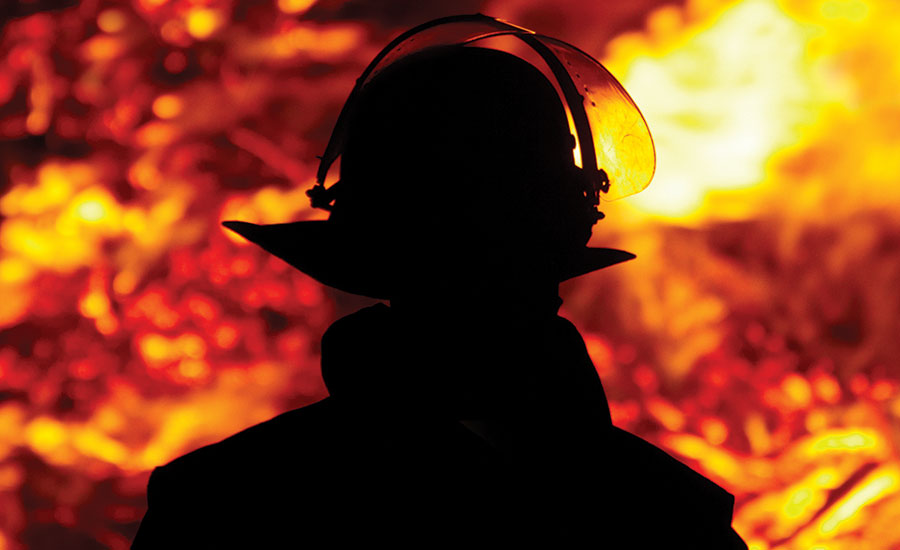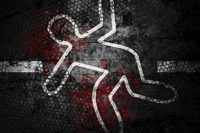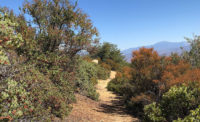In Young Men and Fire, Norman Maclean searches for the cause of the Mann Gulch wildland fire of August 5, 1949, in which 13 firefighters died. He asks the question many if not most safety managers ask at some point: “Did any good, any good at all, come of this?”
Maclean’s writing resonates with the experiences of many safety and health professionals. He tells of “conscience-stricken improvements” that seemingly have always been a knee-jerk reaction to workplace deaths or serious injuries.
One of the lessons of the Mann Gulch fire, writes Maclean, is that “little things suddenly and literally can become big as hell, the ordinary can suddenly become monstrous.”
A recent example
“Big as hell” and “monstrous” describe the ghoulish scenes of the wreckage wrought by a series of explosions in a container storage center in the port city of Tianjin, China, on August 12, 2015. At least 129 people died, scores were still missing as we went to press, and 610 people were hospitalized, 39 in critical condition. It was the worst-ever price paid by China’s firefighters, who accounted for more than 100 of the dead and missing.
China’s President Xi Jinping told authorities to learn from the “extremely profound” lessons from the accident.
Which brings us back to “conscience-stricken improvements” and the haunting question: Did any good, any good at all, come of this?
Writing about the Mann Gulch fire, Maclean expresses a personal thought I’ve had a number of times after a workplace safety tragedy: “You might have thought someone early on would have realized that something like this would happen before long.”
In the Tianjin catastrophe, you’d think someone early on would have realized safety procedures regulating hazardous materials were lax, warehouse chemical inventory recordkeeping was sketchy, highly toxic chemicals were stored too close to residential homes, and safety oversight was insufficient for a site storing more than 40 kinds of hazardous chemicals, including ammonium nitrate and potassium nitrate. Ammonium nitrate, which is principally used in manufacturing fertilizer, has been implicated in a number of other fatal industrial explosions. Chinese officials found what they believe to be 700 tons of sodium cyanide at two locations within the site — 70 times the legal limit.
You also might have thought emergency responders would have received better training. The first firefighters on the scene reportedly attempted to extinguish the flames with water, only to make the blaze worse. It was only after the explosions that firefighters switched to using foam.
The natural blame game
Maclean calls this would’ve, could’ve, should’ve 20-20 hindsight thinking a “universal principle.” I’ve applied this “principle” to any number of safety incidents large and small we’ve reported on over the years. How lax, complacent, corrupt or careless could those responsible be? It’s a blame game that attempts to assuage emotions of shock, anger, fear and grief. Maclean writes “this principle comes about as close to being universal as a principle can.”
I’ve never thought of this typical reaction to a workplace safety tragedy as a “universal principle.” Perhaps it is inherent in our human nature. Maclean then carries his concept a step further: ”But no one seemed to have sensed this first principle because of a second principle inherent in the nature of man — namely, that generally a first principle can’t be seen until after it has been written up as a tragedy and becomes a second principle.”
Hmmm… the underlying factors, the foreshadowing of calamity, the clues, the risks — they “can’t be seen” despite all the proactive safety protocols — regular safety audits, compliance audits, job safety analyses, near-miss reporting, personal observations, asking employees, “When, where and why is the next unsafe incident going to occur?” “Can’t be seen” as a human principle seems defeatist and pessimistic. Why then bother with proactive safety measures?
The ordinary becomes monstrous
But there is truth to what Maclean writes, that despite our best efforts: “Little things suddenly and literally can become big as hell, the ordinary can suddenly become monstrous.” In the Tainjin explosions, the “little things” were not minor — the flouting of regulations, corrupt ownership and political payback. But in many incidents, such as the Mann Gulch fire, painstaking reviews and investigations can take years to piece together rare confluences of “little things” that suddenly become catastrophic. In Mann Gulch that day, fire behaved in ways never seen before. Unpredictable and unlikely winds caused the fire to suddenly jump from one side of the gulch to the other and “blow up” into a raging, fast-moving blaze. Not much was understood about fire blow ups in 1949. Today, the National Park Service defines a blow up as “a sudden increase in fire intensity or rate of spread strong enough to prevent direct control or to upset control plans. Blow-ups are often accompanied by violent convection and may have other characteristics of a fire storm.”
A beautiful poem —“Now we know”
Some good did come of the Mann Gulch fire. Maclean writes, “Now we know. Now we know. In the wide world anywhere, (this is) one of the most beautiful poems.” Many safety pros would agree after wrapping up an investigation.
The incident increased scientific knowledge of fire behavior in ways that help firefighters stay out of death traps. Training of firefighters improved in ways that increased their safety. In 1957, the U.S. Fire Service issued Standard Fire Fighting Orders that — with a bit of tweaking — are applicable to workplace maintenance, shutdowns, emergency response, lockout-tagout, confined space entry, and other practices: Keep informed of conditions — have situational awareness; know exactly what your instructions are and follow them; identify key points in your assignment and take action in order of priority; have an escape plan in mind; thoroughly scout the areas of your responsibility; establish and maintain regular communication ; quickly recognize changed conditions and immediately revise plans to handle; discipline — establish and maintain control of all people under your supervision and at all times know where they are and what they are doing; and supervision — be sure your people that you commit to any job have clear instructions and adequate supervision.
Déjà vu all over again
Norman Maclean’s son, John Norman Maclean, wrote Fire on the Mountain, an account of the South Canyon Fire on Storm King Mountain on July 6, 1994 in Colorado, which took the lives of 14 firefighters. Maclean’s son discloses the competition and paralysis among government agencies that contributed to an ineffectual response and deaths. A subsequent OSHA report blamed fire supervisors on and off the mountain. It’s too easy of a way out to say, “Those who fail to learn from history are doomed to repeat it.” Perhaps we’re faced with another universal principle: Our attention spans are short, and we’re prone to deceitful feelings that lure us to trouble, to paraphrase the novelist Joseph Conrad







